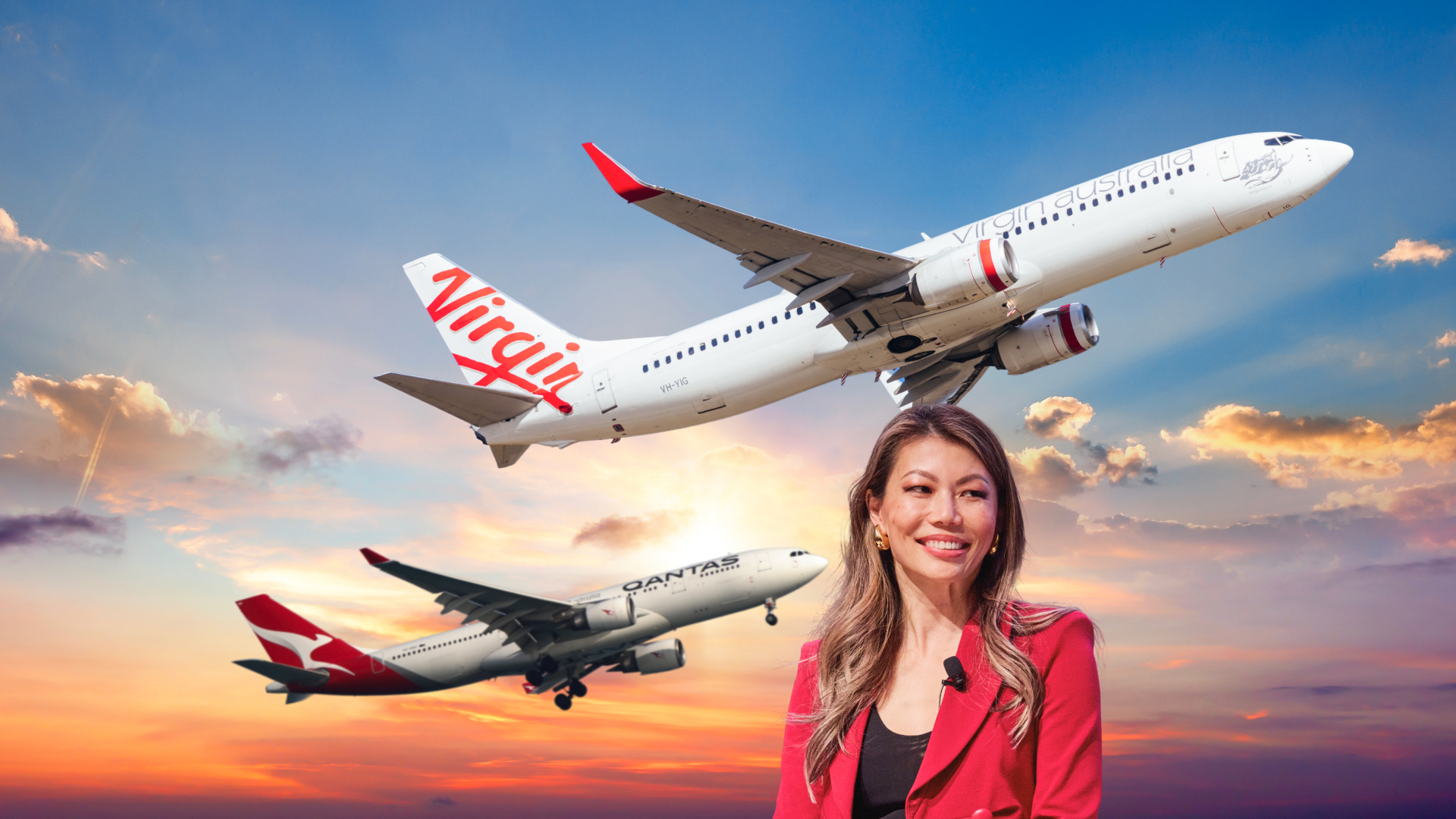The IPO Australia's been waiting for: Virgin takes flight on the ASX

On airlines, Warren Buffett once said “the worst sort of business is one that grows rapidly, requires significant capital to engender the growth, then earns little or no money”. This is hard to argue against, but everything has a price, even airlines as we have seen with the hype around the listing of Virgin.
On the one hand, the hype makes little sense. Virgin (ASX: VGN) has been in the hands of private equity (Bain) since entering voluntary administration in April 2020, and there have been prior attempts to bring this to market in recent years. But on the other hand, it makes a lot of sense because the Australian equity market is shrinking, equity demand is rising, the cost of capital is reasonable and initial public offerings (IPO’s) are scarce – even more so for an airline.
At Ten Cap and as both investors and consumers of airline travel, we are ecstatic that Qantas (ASX: QAN) once again has some listed competition. It wasn’t a coincidence that we have just seen a large fare sale by Qantas as Virgin approached its listing date and as its international tie up with Qatar Airways rolls out. The notion that a bigger and better capitalised competitor within the domestic, and by extension international market, is not good for the consumer is folly. But as investors, it’s a fine line between rational and irrational behaviour and when competition begins to hurt all players.
Everyone has their own thoughts on investing in airlines. The usual view is that you never own an airline long term because they tend to be cyclical, operate in a highly competitive environment, are extremely capital intensive, have a heavy regulatory and workforce exposure and are subject to the vagaries of the oil price - which for the most part is completely out of their hands. I don’t dispute these points, but truth be told, I don’t see how that approach is different for any stock investment we make at Ten Cap unless it has the benefit of structural growth tailwinds which make it “buy and hold”.
We like Virgin and think it will trade well despite recent Middle East concerns which have driven a spike in the oil price and raised concerns around the outlook for risk assets. Virgin has a long list of attractive attributes that put it in a strong position on both a relative (versus Qantas) and absolute basis. This includes a dominant position in a structurally attractive domestic market (enhanced by regional airlines Bonza and Rex entering voluntary administration in 2024); a refreshed customer proposition including its rewards program; a world class suite of international airline partners including a strategic partnership with Qatar (recently voted the Worlds Best Airline by Skytrax 2025); a clearly defined schedule for operational improvement (targeted gross transformation benefits of $400m for FY2025 & FY2026); the use of a simplified airline fleet and a slimmed down balance sheet which provide it with increased financial flexibility.
There are also additional, potentially structural, tailwinds for airlines, as rising long term demand for premium tickets picks up. The trend towards premiumisation is being driven by the rise of a more affluent consumer and the treatment of airline travel as a luxury good where experiences such as flying at the front are increasingly important. While Virgin is not a premium global carrier, its partnership with Qatar now provides a best in class offering that was previously not available for Virgin fliers.
But, as with all investments, these attributes don’t mean much if the price is not right and we think a 27% discount to incumbent Qantas leaves plenty of upside for shareholders who want Australian airline exposure and for the risk that it might not be able to deliver in full, on its IPO targets. In addition, and relatively fortuitously, Virgin is better positioned to absorb recent geopolitical risks given it is 100% domestically focused and is 100% hedged against any adverse movements in the oil price over the coming 12 months, the former which is something that helps to reduce exogenous operational risk.
When all is said and done, if the IPO of Virgin marks a re-opening of Australia’s capital markets, then as a fund manager it’s welcomed with open arms given net equity supply has been going backwards (fast) for the past few years. As a consumer, a serious domestic competitor that finally has some financial flexibility alongside a world class international partnership with Qatar, should provide some long overdue competition that forces a sluggish incumbent to lift its game for all consumers and not just those at the pointy end of the plane.
Qantas has risen 25% since the April lows, outperforming the ASX200 by a solid 10%. But this is not out of line with the recovery seen by global airlines and neither does this put it on a valuation multiple that is out of line with its own historical average or versus international peers (~8-10x forward earnings). However, investors now have a choice, and we see Virgin and Qantas operating much like we view other cozy duopoly investments within the Australian market such as Coles versus Woolworths or even Domain versus REA Group. Sometimes we might choose to own both and other times we might own one over the other. But ultimately it all comes back to price, and we think Virgin is priced to give all stakeholders a decent slice of the pie.
Ten Cap is a boutique investment management company with a singular focus on providing our clients with exceptional returns and experiences. Visit out website here.
2 stocks mentioned

